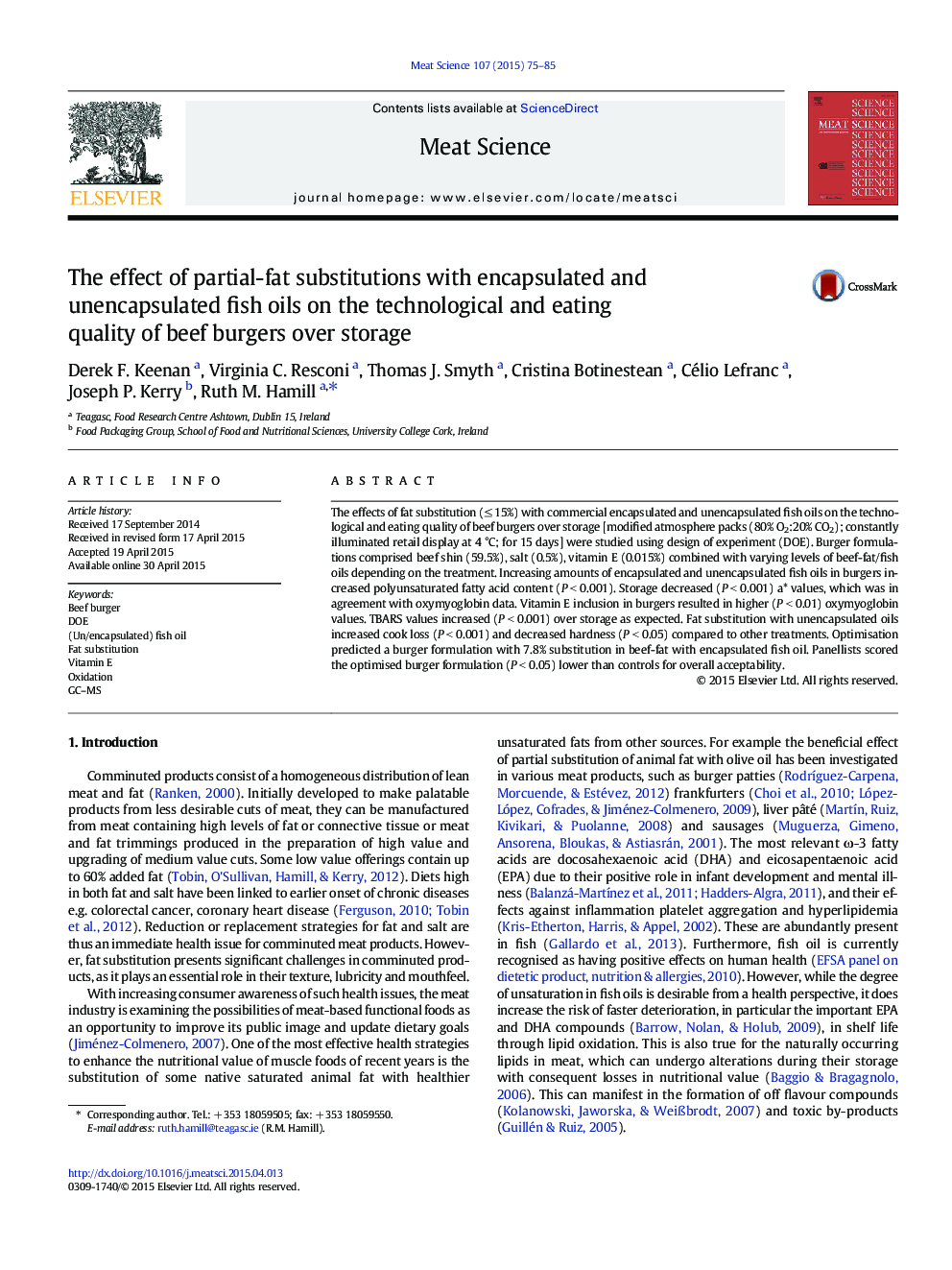| Article ID | Journal | Published Year | Pages | File Type |
|---|---|---|---|---|
| 2449842 | Meat Science | 2015 | 11 Pages |
•Effects of partial fat substitution with un/encapsulated fish oils in burgers•Mixture design was utilised in the design of experiment (DOE).•Oil inclusion increased cook loss and led to some texture modification.•An optimised formulation was predicted with lower fat than control.
The effects of fat substitution (≤ 15%) with commercial encapsulated and unencapsulated fish oils on the technological and eating quality of beef burgers over storage [modified atmosphere packs (80% O2:20% CO2); constantly illuminated retail display at 4 °C; for 15 days] were studied using design of experiment (DOE). Burger formulations comprised beef shin (59.5%), salt (0.5%), vitamin E (0.015%) combined with varying levels of beef-fat/fish oils depending on the treatment. Increasing amounts of encapsulated and unencapsulated fish oils in burgers increased polyunsaturated fatty acid content (P < 0.001). Storage decreased (P < 0.001) a* values, which was in agreement with oxymyoglobin data. Vitamin E inclusion in burgers resulted in higher (P < 0.01) oxymyoglobin values. TBARS values increased (P < 0.001) over storage as expected. Fat substitution with unencapsulated oils increased cook loss (P < 0.001) and decreased hardness (P < 0.05) compared to other treatments. Optimisation predicted a burger formulation with 7.8% substitution in beef-fat with encapsulated fish oil. Panellists scored the optimised burger formulation (P < 0.05) lower than controls for overall acceptability.
